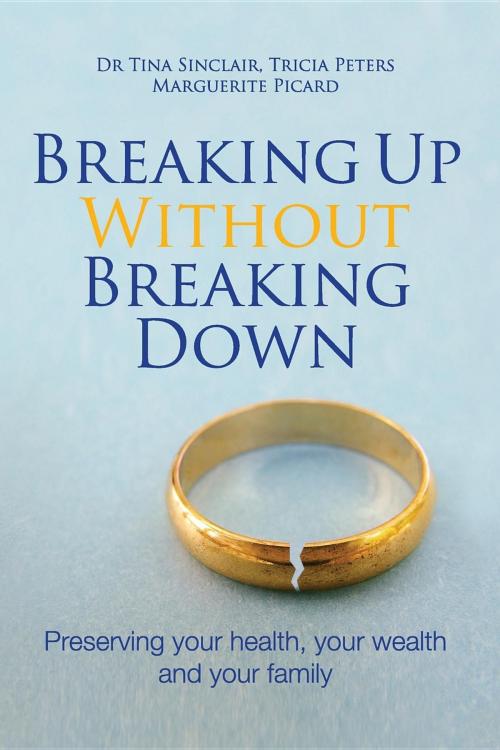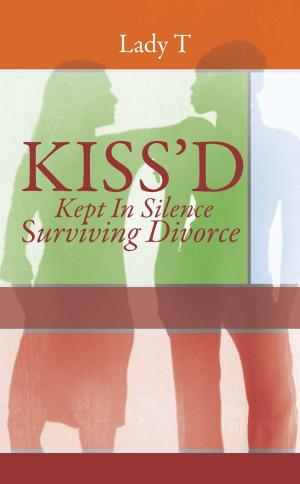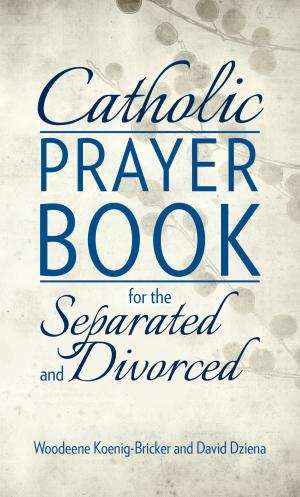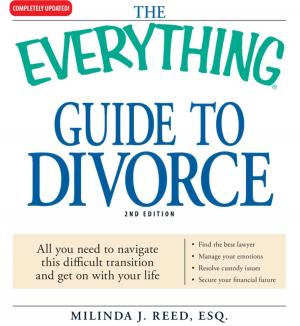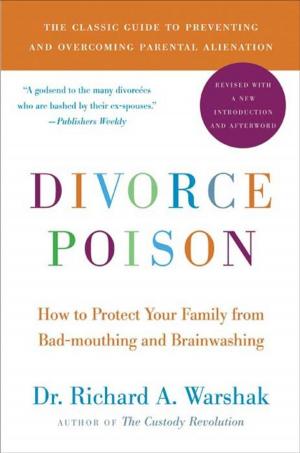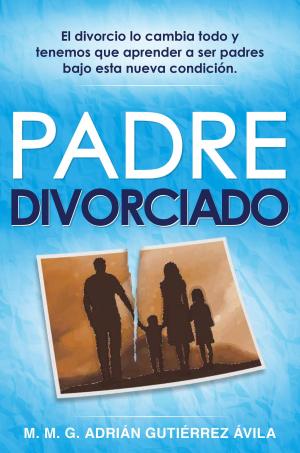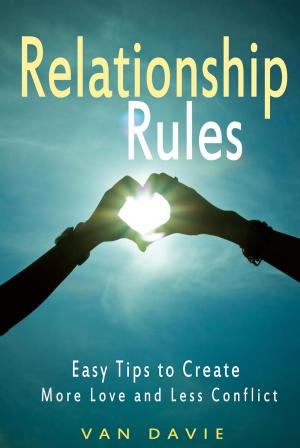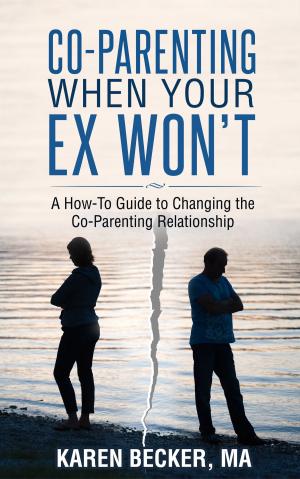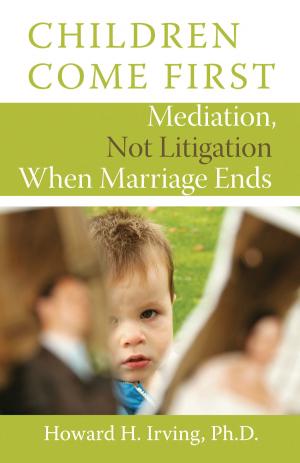Breaking Up Without Breaking Down
Preserving your health, your wealth and your family
Nonfiction, Reference & Language, Law, Family Law, Family & Relationships, Family Relationships, Divorce| Author: | Dr Tina Sinclair, Tricia Peters, Marguerite Picard | ISBN: | 9780992317676 |
| Publisher: | Grammar Factory Pty. Ltd. | Publication: | February 10, 2017 |
| Imprint: | Grammar Factory Pty. Ltd. | Language: | English |
| Author: | Dr Tina Sinclair, Tricia Peters, Marguerite Picard |
| ISBN: | 9780992317676 |
| Publisher: | Grammar Factory Pty. Ltd. |
| Publication: | February 10, 2017 |
| Imprint: | Grammar Factory Pty. Ltd. |
| Language: | English |
There are many ways couples can end up in court or in adversarial negotiations, but there are just as many ways to avoid ending up that way. Sometimes the issues that cause people to go to court look large, like where the children will live or who will get the house, and sometimes they can look small but feel huge. What all family court cases have in common is intense emotion; emotion that is disguised as an argument about ‘facts’, because you can’t really have an argument about emotion in a court, can you?
Where couples are embroiled in the court system for years, where disputes grow so bitter that former spouses cannot even be in the same room, where the legal battle costs hundreds of thousands of dollars, and where both adult children and younger children are hurt by what’s gone on between their parents.
Ultimately, a bad divorce hurts everyone in the family, the extended family and the friendship circle.
Your children could get caught in the middle of arguments, and find themselves in the role of messenger or peacekeeper. They may withdraw from the pain of family life by whatever means they have, through silence, spending a lot of time elsewhere, travel or moving out. They may decide to assert themselves as much as possible, and sometimes retreat into substance abuse or a strong flirtation with ‘the wrong crowd’.
You and your spouse could get so caught up in the conflict and in claiming what you feel is rightfully yours that you lose sight of everything you used to love and respect about this person you had planned to spend your life with, until nothing but bitterness remains.
And eventually, when the dust settles, once you realise that the fight wasn’t worth it and you should have done it differently, all you have created is a lifetime of conflict.
The good thing is that it doesn’t have to be this way.
You and your spouse don’t need to fight tooth and nail for every last cent until you can’t stand to be in the same room as each other.
It’s possible to have a divorce where, even though you and your spouse might be hurting, you agree to focus on making the best of it, for yourself, your children, and the people who care about your family.
It’s possible to reach a settlement that leaves most of your money in your pocket. While you will have to compromise on some things, by working in collaboration you will spend less money on your legal costs, and have the added value of emotional and financial planning support.
It’s possible to separate in a way that shields your children from what is going on in their parents’ relationship. This is true for adult children as well as younger children. If asked, children would usually prefer that their parents stayed together, but separation doesn’t have to cause lasting damage to them if their parents can get it right.
With this perspective, the mark of a successful marriage doesn’t need to be staying together for fifty or sixty years and having your anniversary commemorated in the local paper.
Instead, it is possible for a marriage to end in a way that sets your whole family up for a positive life after divorce.
It isn’t the separation itself that could damage your family, but the way in which you go about it. If you and your spouse are willing to work together for the common good of your family and have the support you need, there is no reason why you and your children can’t maintain healthy relationships.
Ultimately, the kind of separation and divorce you have will affect your recovery and wellbeing after divorce.
There are many ways couples can end up in court or in adversarial negotiations, but there are just as many ways to avoid ending up that way. Sometimes the issues that cause people to go to court look large, like where the children will live or who will get the house, and sometimes they can look small but feel huge. What all family court cases have in common is intense emotion; emotion that is disguised as an argument about ‘facts’, because you can’t really have an argument about emotion in a court, can you?
Where couples are embroiled in the court system for years, where disputes grow so bitter that former spouses cannot even be in the same room, where the legal battle costs hundreds of thousands of dollars, and where both adult children and younger children are hurt by what’s gone on between their parents.
Ultimately, a bad divorce hurts everyone in the family, the extended family and the friendship circle.
Your children could get caught in the middle of arguments, and find themselves in the role of messenger or peacekeeper. They may withdraw from the pain of family life by whatever means they have, through silence, spending a lot of time elsewhere, travel or moving out. They may decide to assert themselves as much as possible, and sometimes retreat into substance abuse or a strong flirtation with ‘the wrong crowd’.
You and your spouse could get so caught up in the conflict and in claiming what you feel is rightfully yours that you lose sight of everything you used to love and respect about this person you had planned to spend your life with, until nothing but bitterness remains.
And eventually, when the dust settles, once you realise that the fight wasn’t worth it and you should have done it differently, all you have created is a lifetime of conflict.
The good thing is that it doesn’t have to be this way.
You and your spouse don’t need to fight tooth and nail for every last cent until you can’t stand to be in the same room as each other.
It’s possible to have a divorce where, even though you and your spouse might be hurting, you agree to focus on making the best of it, for yourself, your children, and the people who care about your family.
It’s possible to reach a settlement that leaves most of your money in your pocket. While you will have to compromise on some things, by working in collaboration you will spend less money on your legal costs, and have the added value of emotional and financial planning support.
It’s possible to separate in a way that shields your children from what is going on in their parents’ relationship. This is true for adult children as well as younger children. If asked, children would usually prefer that their parents stayed together, but separation doesn’t have to cause lasting damage to them if their parents can get it right.
With this perspective, the mark of a successful marriage doesn’t need to be staying together for fifty or sixty years and having your anniversary commemorated in the local paper.
Instead, it is possible for a marriage to end in a way that sets your whole family up for a positive life after divorce.
It isn’t the separation itself that could damage your family, but the way in which you go about it. If you and your spouse are willing to work together for the common good of your family and have the support you need, there is no reason why you and your children can’t maintain healthy relationships.
Ultimately, the kind of separation and divorce you have will affect your recovery and wellbeing after divorce.
